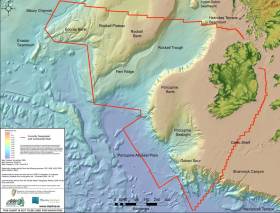Displaying items by tag: The Sea from Two Perspectives
Double Lecture: ‘The Sea From Two Perspectives’
#DoubleLecture - The Winter lecture 2015/16 season of the Glenua Sailing Centre continues with a double lecture programme at the March meeting entitled: ‘The Sea From Two Perspectives’.
The illustrated lectures will take place on Thursday 3 March (20:00hrs) at the Poolbeg Yacht & Boat Club, Ringsend, Dublin. There will be an entry fee of €5 in aid of the R.N.L.I
The first lecture, “Art and The Sea-An Enduring Fascination” will be given by Jessica O’Donnell who is Collections Curator at Dublin City Gallery The Hugh Lane. She is a graduate of Trinity College, Dublin and the University of St Andrews. Her publications include Discover Art (shortlisted for CBI Children’s Book of the Year in 2008) and Harry Clarke The Eve of St Agnes (2012). She also enjoys sailing and is a member of Sailing in Dublin (SID) Club.
The talk will explore how artists have been captivated by the sea from many perspectives including how the Impressionists loved portraying people at leisure by the sea; how safeguarding the freedom of the seas was represented in artworks commissioned as war time propaganda; to contemporary artists whose fascination with the sea and marine life continues to inspire.
The second lecture is entitled, “Putting Eyes In The Deep Ocean” by Dr Fiona Grant, Ocean Science & Information Services (OSIS), Marine Institute, Ireland. Fiona began her studies in geology before going on to specialise in marine geophysics and earth system dynamics.
Her first job was as conservation coordinator for wild salmon and sea trout before taking responsibility for research infrastructures in the Marine Institute.
The talk will focus on some of the challenges in observing the deep ocean environment, how to harness ocean energy in Galway Bay and present some of the latest results from studies in the Atlantic Ocean






























































